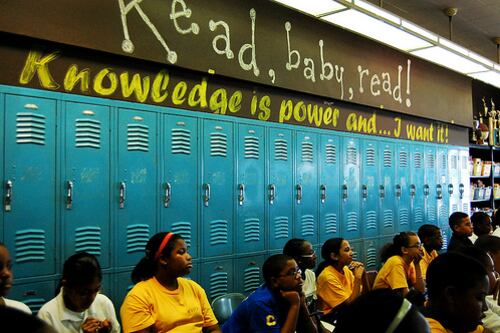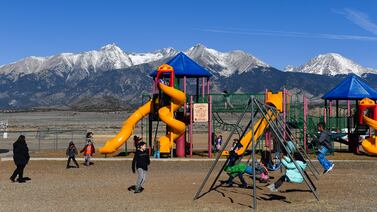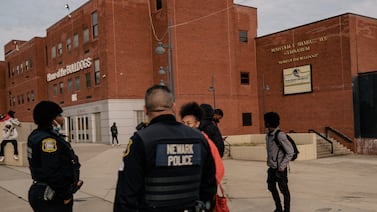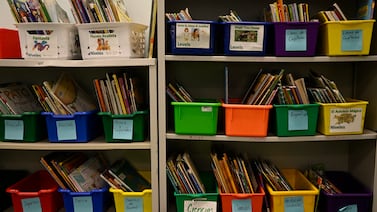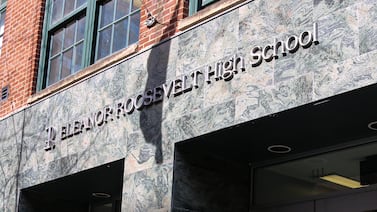Charter school operator KIPP, which canceled plans to set up in Detroit last year, is opening its first school in the city next week, bringing a nationally recognized network to a city dominated by small, locally grown charter schools.
KIPP Detroit Imani Academy will start out with 60 to 75 kindergarteners in a community center in northwest Detroit. The school, which received its charter from Central Michigan University, will eventually enroll students in grades K-12.
Some education advocates in Detroit have aimed to bring a KIPP school to Detroit for years. But national charter school operators have largely shied away from Detroit because of high rates of child poverty, relatively low school funding, and loose regulation that fuels fierce competition among local operators.
Supporters of the school said KIPP Detroit Imani Academy would raise the bar for Detroit schools, pointing to its well-documented record of improving test scores in communities of color. Originally called the Knowledge Is Power Program, the network now enrolls more than 100,000 students across 20 states, largely in urban communities with many students of color. It emphasizes high expectations for students and a culture of college-going.
Maria Montoya chose the school for her rising kindergartner because it is close to her family’s house, and because she believes that the KIPP network’s success will transfer to the new school.
“They get stability and support from having a national network of folks who’ve been learning together for a good number of years,” she said. “I feel confident that even though this is a new team, they’ll have the support they need to get this off the ground.”
Critics of the proposed school, including Detroit Superintendent Nikolai Vitti, have argued that with enrollment declining citywide, Detroit has enough schools already, and that competition from a new school would hurt existing schools.
The new school will be based at the St. Suzanne Cody Rouge Community Resource Center at 19321 W. Chicago Street. Candace Rogers, superintendent of KIPP Detroit, said the network plans to purchase a plot of land in the Cody Rouge neighborhood and build a K-12 campus.
“We aim to be a community-focused school, and believe that launching inside of a building that is considered the heart of a community is aligned with our beliefs as an organization,” Rogers said in an email, referring to the Community Resource Center.
When classes begin on Tuesday, Sept. 6, four kindergarten rooms will hold between 60 and 75 students, Rogers said. The school had aimed for more than 100 students in its first year and is still accepting applications. It has five teachers and four assistants on staff.
KIPP scrapped plans to open a school in a different part of Detroit last fall. The network had planned to purchase a vacant parcel of city-owned land and build a K-12 campus there. Amid public criticism of the sale, KIPP backed out of the deal.
Following a decade of rapid expansion, fewer charter schools have opened in Michigan in recent years. The state received a five-year, $47 million federal grant in 2018 to expand charter schools but has so far spent less than half of the money. The national KIPP network also received a substantial grant through the same program. The new school is funded in part by federal charter school startup grants.
Koby Levin is a reporter for Chalkbeat Detroit covering K-12 schools and early childhood education. Contact Koby at klevin@chalkbeat.org.


